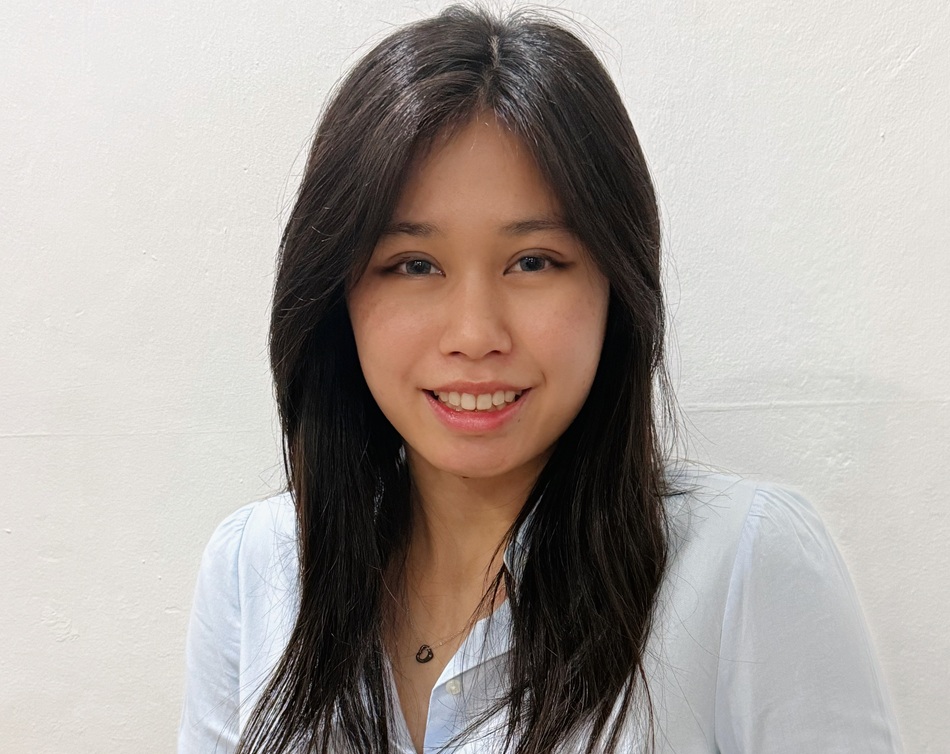
For Singaporean student Wynn, curiosity has always been her compass. A proud lifelong learner, she turned her passion for chemistry into a powerful force for industrial innovation, beginning her Master of Science in Industrial Chemistry at TUM Asia during one of the most turbulent periods in recent memory.
Pandemic-Proof Passion
While COVID-19 brought many students’ plans to a halt, Wynn saw an opportunity. She chose to study at TUM Asia, drawn not just by its academic reputation, but also its supportive and accessible environment. “I was comfortable with the teaching style,” she explains. “And it was easier to communicate with the local administration if I had any doubts, which is especially important during the pandemic.”
Adapting to online learning wasn’t easy. “It was harder to understand and focus during lectures,” Wynn admits. But it turned into a growth opportunity. “That experience helped me improve in meetings. I can now catch the main points more quickly.”
One memorable moment came when TUM Asia mailed chemistry kits to students’ homes. “It may have been a simple mixing and moulding project, but it was the effort that mattered,” she says. “It allowed us to have fun with chemistry, even though we were stuck at home.”
Ready for Industry
Today, Wynn works as a Research Engineer at Malacca Sourcing Pte Ltd, part of a sportswear retail group which is one of the largest international retailers of sporting apparel, footwear and equipment globally.
“I plan and perform experiments, analyse results, and then plan next steps. With several projects running simultaneously, it’s important to schedule time for reading papers, writing reports, and discussions too.” She also addresses a common misconception about her field. “People think R&D is just lab analysis, often only in petrochemical industries. But it’s much broader. The exciting part is that every idea can spark more ideas, leading to progress in different directions.”
Wynn credits her time at TUM Asia with smoothing her transition into working life. “I’d already covered some of the topics, so reading papers has become easier. I can offer suggestions and even find the right references to explain scenarios clearly.”
Hands-on experiences, from lab experiences to her internship and thesis played a key role in building her confidence. “I’ve had experience across different areas: chemistry, analytical instruments, even some microbiology. That variety gave me a head start, and I wasn’t intimidated by unfamiliar tools or processes.”
Still, the transition wasn’t without its challenges. “I was used to professors guiding every step,” she recalls. “Suddenly I had to make decisions on my own. It was tough at first, but I learnt that as long as I base decisions on research and take small, calculated steps, even failures become valuable learning experiences.”

Building Tomorrow’s Materials
Wynn is especially excited about how technology is transforming industry. “AI is being integrated into more aspects of life and work. Robots in production lines can now troubleshoot too, which means fewer faults and less waste.”
Looking ahead, she sees automation and digitalisation becoming the norm. “It’s happening across every industry. And with global warming, clean and green technologies will become a basic requirement.”
Her personal aspiration aligns closely with Singapore’s sustainability agenda: “I don’t have big dreams. But if I can help develop a green material with excellent properties that’s simple and scalable to implement, that would be amazing.”
Beyond technical skills, Wynn values the multicultural exposure she had during her studies. “My classmates came from different countries and backgrounds, some with work experience. We had to do group projects, sometimes entirely online. That helped me get comfortable working with diverse teams.” Today, those soft skills are just as crucial as her technical ones.
Looking Back, Moving Forward
Her advice as a senior to future students? “Go for it. Ask questions, even the ones you think are silly. Sometimes those questions spark a new way of thinking.”
To her younger self, she’d say: “Socialise more.” Casual conversations today might become career-changing connections in the future.
As a member of the TUM and TUM Asia alumni network, Wynn appreciates the access to peers across various industries. “Everyone has different expertise now. Their experience and advice are valuable.”
Wynn’s story is a reflection of how resilience, curiosity, and a solid education can shape a meaningful career. Wynn’s journey reflects not only her resilience and adaptability, but also the transformative power of applied, cross-cultural education. Graduates like Wynn are showing how TUM Asia graduates can lead global change – one molecule, one experiment, one breakthrough at a time.
Explore our BEng and MSc programmes to join this growing network of changemakers.